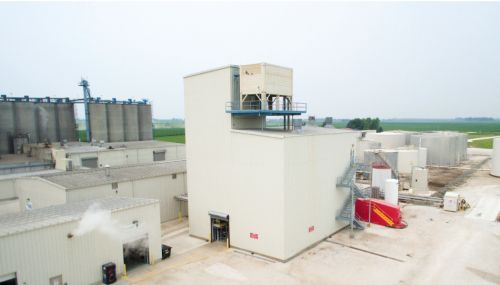All
A Bright New Day for Oilheat

Tom Santa, CEO of Santa Energy Corp., has a longstanding interest in fuel quality. Now Chairman of the National Oilheat Research Alliance (NORA), Santa appreciates the improvements in fuel quality that are occurring as the sulfur content of heating oil decreases. Many heating oil states have already moved at least to a “low sulfur” fuel that contains no more than 500 parts per million (ppm) of sulfur, which represents a reduction of 75 percent or more. In 2018, most Oilheat states will move to ultra low sulfur heating oil, which contains only 15ppm. Heating oil marketers are also blending in biodiesel, which reduces carbon emissions.
Based in Bridgeport, CT, Santa Energy Corp. is the parent company of Inland Fuel Terminals, Santa Fuel Inc., and Santa Buckley Energy.
Oil & Energy recently reached out to Santa to discuss improvements in fuel quality as well as NORA’s role in strengthening the industry.
Oil & Energy: When and why did you become interested in fuel quality?
Tom Santa: Twenty-five years ago we were buying on-spec quality heating oil and putting it through our own well-maintained terminal to deliver to our residential customers. At the same time we were getting hundreds of calls from customers that went, “We buy all our oil from you at a high price because we want the peace of mind. We had no heat today, and when your serviceman pulled the filter off the furnace it was all clogged with black stuff. What are you selling us?” On top of poor customer satisfaction, this problem was costing us a lot of money because all these customers had service plans.
O&E: Please talk about how you test and track fuel quality and its effects at Santa Energy?
TS: We purchase certified ASTM D396 heating oil and monitor our storage tanks for bottom sediment and water (BS&W). Each month we total the number of filters we have replaced, excluding routine maintenance calls, and divide that number by the volume we have delivered to derive a fuel system failure factor of failures/100,000 gallons delivered.
O&E: How much cleaner are heat exchangers and fuel filters since Connecticut moved to 500ppm?
TS: The work done at Brookhaven National Laboratory several years ago showed that low sulfur fuel reduces heat exchanger fouling by 50 percent. While no independent lab has verified this, my measurement of fuel system failures has also shown a 50 percent reduction.
O&E: Please describe how 500ppm heating oil is created.
TS: High sulfur fuel is blended with ultra-low sulfur fuel proportionally to produce a combined product that is less than 500ppm.
O&E: Is 15ppm distillate a very different fuel from traditional heating oil? How so?
TS: 15ppm ultra-low sulfur No. 2 oil is a highly refined fuel. Refineries are moving toward producing both heating oil and diesel in a single stream. The product is lighter, with higher API gravity, and more stable.
O&E: What is the outlook for heat exchangers and fuel filters with 15ppm fuel? Should fuel treatment strategies change?
TS: We expect further improvement as we move from 500ppm heating oil to 15ppm in 2018 in Connecticut and other New England states. It may be possible to forego treatment of the fuel for properties such as stability and sludge dispersion.
O&E: What are the principle benefits to customers from reduced-sulfur fuel and bioblends?
TS: Reduced sulfur fuel offers a number of benefits to the homeowner and to the environment. There are the advantages already mentioned of improved fuel stability and reduced heat exchanger fouling. For the customer, this means improved efficiency and greater reliability. A cleaner, more stable fuel facilitates reliable operation at lower firing rates, which allows longer run cycles, cleaner burning and increased efficiency. Lower sulfur fuel also means that less corrosive acid is formed during combustion, which results in less heat exchanger and flue corrosion and longer appliance life. This also opens the door to the use of condensing oil appliances that can offer combustion efficiency as high as 99 percent. The benefit to the environment includes the reduction of sulfur oxides and particulate to the negligible levels found in utility gas combustion.
The principle benefit of biofuel is the reduction of carbon dioxide in the atmosphere. Utility gas emits both carbon dioxide and methane into the air. Both are considered greenhouse gases, but methane has 100 times the impact of carbon dioxide. A bioblend of 20 percent has a lower greenhouse effect than utility gas when factoring in a very conservative 1.4 percent methane leakage rate.
O&E: Please talk about how research by NORA and Brookhaven National Laboratory has provided support for the transition to cleaner fuels?
TS: NORA has built a state of the art oil research lab in Plainville, NY. Dr. Tom Butcher, who has been the principle scientist at the Brookhaven Oilheat research laboratory, oversaw the building of the NORA lab. We are pleased to report that he will be coming on board with NORA full-time at the start of 2017. He will lead a broad spectrum of research from advanced combustion and burner technology, venting and hydronics to heating oil and biofuel study.
O&E: Please discuss the connection between industry research and the increasing use of biodiesel as a heating oil blend stock.
TS: NORA will work to identify any operational challenges presented by biofuels in existing systems. We will then work to ensure that the fuels function safely and reliably while facilitating their acceptance by manufacturers, governing agencies and, of course, consumers.
O&E: What are the important fuel research projects for the years ahead?
TS: Much of the fuels work will be in the biofuels area. NORA will be studying the impact of biofuel and Ultra Low Sulfur heating oil on fuel system components, heat exchangers and venting. In addition to this, they will monitor biofuel quality, cold flow properties and combustion characteristics. In addition to fuel research, the lab will also be looking at advanced burner technologies, tankless coil efficiency, fuel savings analysis and other projects as they come up.
O&E: How can dealers help customers appreciate that biodiesel blending offers a unique path away from fossil fuel consumption?
TS: We must focus on promoting the positive aspects of biofuels as an enhancement to rather than a replacement of conventional petroleum products. The term “fossil fuel” is a disparaging label that we should avoid using. Biofuels are a renewable, sulfur free and reduced carbon alternative fuel. Our employees and our marketing materials can deliver this message. It is my belief that we must market biofuel as a component of our fuel.
Moving to B100 is not realistic for two important reasons. First, biofuels have limited cold-flow properties and as a result cannot be used in all climates or in all seasons. Secondly, the advantageous biofuel economics we enjoy today are a product of government subsidies and incentives. The next administration is likely to have a different view of this enviro-economic engineering, and we need the flexibility of both conventional petroleum and biofuel to ensure we remain competitive.
O&E: Should state governments be more supportive of heating oil?
TS: Absolutely! The State of Connecticut along with other NESCAUM [Northeast States for Coordinated Air Use Management] states set a goal of reducing carbon emissions by 80 percent by 2050. Connecticut then created their Comprehensive Energy Strategy that included an enormous investment in gas pipelines, and it would take decades to recover these costs. They have now come to the realization that in order to achieve an 80 percent reduction in greenhouse gases there is no room for any natural gas. The message to be delivered is that B20 ULS heating oil offers lower greenhouse gas emissions than utility gas and requires no additional outlay for infrastructure.
Getting this message accepted will be difficult, as all the New England states have made a significant investment in planning and promoting the gas infrastructure build-out. To make our story even more compelling we must introduce two other factors beyond cleanliness: cost and reliability. As of the beginning of this season heating oil in Connecticut is 25 percent less expensive than utility gas, according to figures from the state Department of Energy and Environmental Protection and the U.S. Energy Information Administration. This occurred in the summer when gas prices are typically very low relative to oil. As far as reliability goes, heating oil has the edge here as well. Our product is readily storable and transportable, and our supply and delivery resources are diverse. Gas is transported by pipeline only, while oil can move by pipeline, ship, barge, rail and truck. Our supply can come from domestic sources, and if those are in short supply, we can turn to Europe, South America, Africa, Russia or the Middle East. Oil can respond to unexpected spikes in demand within days, while the utilities depend on interrupting supply to their major users. Bottom line is that ultra low sulfur heating oil with a biofuel component is cleaner, less expensive and more reliable. We must deliver that message to ourselves, our employees, our customers and then to policy makers and the public.
O&E: Please talk about NORA’s goals for the next few years. What can the Alliance do to help dealers retain customers and be more successful?
TS: NORA will continue to focus on the three pillars of Research, Technical Education and Consumer Education. We have made great strides in improving the quality of our product, and now we must take advantage of it. ULSHO opens the door to the next generation of combustion technology with lower firing rates, high efficiency condensing systems and more compact appliances to name a few opportunities. With Dr. Butcher heading the research effort full-time, he can build the team to focus exclusively on the needs of the Oilheat industry and improving our products. Our technical education will enable our field technicians to deliver greater reliability and economy, while consumer education will inform the public that we truly do offer the cleanest, most economical and dependable home heating fuel. Dealers need to disseminate this information to their organizations, customers and the wider community. It is a bright new day for Oilheat, and we must declare to the world we are a renewed industry.
Related Posts
 Why Quality Matters in Your Biofuel Blends
Why Quality Matters in Your Biofuel Blends
Posted on June 25, 2025
 Incorporating Higher Blends of Biofuels
Incorporating Higher Blends of Biofuels
Posted on May 14, 2025
 NORA Programs at Eastern Energy Expo
NORA Programs at Eastern Energy Expo
Posted on May 13, 2025
 March Short-Term Energy Outlook
March Short-Term Energy Outlook
Posted on April 28, 2025
Enter your email to receive important news and article updates.
